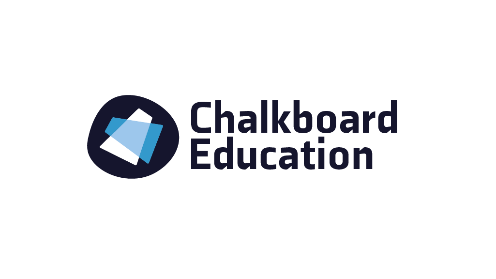

Chalkboard Education
Covid-19 took the world by storm and changed life as we knew it. Governments across the world came up with measures to ensure the spread of the virus was minimal. In Ghana, these measures included the immediate closure of schools and the shift to distance education. Teachers in Ghana are trained to teach in-person, the online distance teaching directive required the immediate acquisition of a new skill set of teaching online. In response to this, Chalkboard education implemented a project aimed at equipping teachers with the basic necessary skills to ensure that education continued during the pandemic.
The principal beneficiaries of this project are primary and high school teachers, and it is implemented collaboratively by Chalkboard Education and MasterCard Foundation. Currently, the project is in its pilot phase.
Our Approach
Chalkboard Education provides low-cost mobile-first training to geographically scattered audiences. The training is accessible offline which enables users in connectivity starved parts of the country to continue to access the same content as those in the big cities at no extra data cost to them.
The skills offered through the training include:
- How to teach effectively during school closure
- What to teach during school closure.
- How to evaluate if learning is happening during school closure.
- How to communicate effectively during school closure.
Key Results
- Chalkboard Education created 6 courses that included video and audio files.
- The programme was rolled out to 720 teachers in 5 regions of Ghana. These teachers completed the syllabus and were able to conduct classes throughout the pandemic. This meant that for the these teachers and their students, teaching and learning continued throughout the year.

Lessons Learnt (Success Factors & Challenges)
- Content: relevant and timely. The content was broken down to make sure it was not overwhelming to the teachers keen on acquiring a new skill to ensure teaching continued.
- The programme’s “mobile-first approach” ensured the content was available to teachers without them investing in computers or laptops, a common deterrent when it comes to distance learning.
- Offline functionality: this made adoption easy as the teachers only had to download 57.1Mb of data which ensured that their data expenses were not inflated by the courses.
Challenges/Barriers
The greatest challenge experienced was in reaching more teachers; the closure of schools and lock down regulations restricted movement, with some people leaving the city for “low-infection” zones. This challenge was mitigated by working with teachers’ groups to ensure we had an audience for this pilot.
Moving Forward
Chalkboard Education is currently preparing for the further up scaling of this programme in primary schools, secondary schools, polytechnics, and universities with the aim of reaching more teachers across the country. The thematic focus of the content of training will also be enhanced and expanded beyond pandemic specific content.
The sustainability model of this programme includes a Business to Business (B2B) approach where partnerships with corporates are built to fund the roll out of the project. This is because teachers have limited resources and extra costs are a major deterrent to continuous professional development. Chalkboard Education has partnered with organisations such as the African Union, the MasterCard Foundation, Opportunity International and Jackson Educational Complex which has enabled the programme to reach over 12,000 teachers in Ghana, Uganda, Kenya, Tanzania, Rwanda, and Colombia. Chalkboard seeks also seeks collaboration with institutions which focus primarily on education or as Corporate Social Responsibility (CSR) to sponsor teachers to these courses.
The programme has also received funding from regional bodies such as the African Union who will also facilitate meetings with the Ministry of Education to ensure that our courses are available to public service teachers.
Resources
Chalkboard.education https://www.chalkboard.education
Contact details: Genevieve Simiyu


